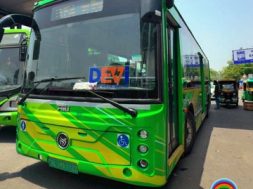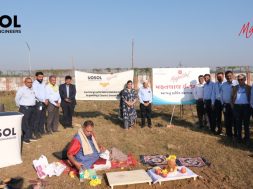
Saudi Authority launches “Shamsi” to evaluate feasibility of solar PV systems in homes
“Shamsi” helps consumers find out the estimated cost and install a small 2MW solar PV system in their house connected to the main electricity grid.
Saudi Arabia’s Water and Electricity Regulatory Authority has launched the “Shamsi” portal, which provides a platform for consumers to evaluate the economic feasibility and estimated costs of installing a small solar photovoltaic (PV) energy system in a home or facility, before connecting it to the public electrical grid.
The regulatory authority stated that the “Shamsi” portal provides consumers with an easy-to-use electronic calculator that helps them analyse the financial and technical aspects of the estimated installation cost, and provides them with a number of other assistance services – it also allows a qualified consultant and contractor to conduct an economic feasibility study of installing the solar energy system in the consumer’s facility.
The electronic calculator in the “Shamsi” portal provides a detailed statement of the estimated costs, an estimate of revenues and savings based on the produced solar energy, the applicant’s consumption rates, and a statement of the expected time period to recover the value of the costs.
The authority indicated that small solar photovoltaic systems refer to PV systems with a maximum capacity 2MW, installed in houses or small facilities and connected parallel to the distribution system of the electric service provider.
The authority has created a path for a model agreement between the electric service provider and the eligible consumer for the installation of a small solar PV system, where the terms and conditions, an application form, and approvals for net billing arrangements are defined, and the small solar PV system is linked to the distribution system.
For the purpose of protecting consumer rights, the consultants and contractors responsible for designing, examining, installing, and maintaining small solar PV systems will need to be qualified and certified through the relevant qualification committee in accordance with the controls and requirements set by the regulations to ensure the efficiency and quality of the installation and connection.
The regulations require the distribution service provider to maintain an up-to-date record of qualified contractors and consultants, to publish this record on its website, and to present it to anyone upon request.
The authority clarified that this work is part of its tasks to provide adequate, reliable, high-quality and sustainable electricity services to its consumers, while also providing options for diversifying sources of energy, according to the capabilities of each consumer.
The project has begun implementation following the completion of organisational and technical arrangements with the various parties related to the use of solar PV energy systems in the kingdom, involving several bodies including the Ministry of Energy; the Ministry of Municipal and Rural Affairs; the Ministry of Commerce; the Water and Electricity Regulatory Authority; the King Abdullah Energy City; and the Saudi Standards, Metrology, and Quality Organisation.















